The Umm el-Fahem Art Gallery: Building Peace and Tolerance Through Art
BY NURIT TAMIR
The Umm el-Fahem Art Gallery is a unique space for the exhibition and promotion of Arab-Israeli and Palestinian art in Israel and for strengthening civic participation and social involvement by Arab and Jewish residents of the Wadi Ara region in northern Israel.
Recognizing the unique ability of art to unite, engage, and empower, the Umm el-Fahem Art Gallery was founded in 1996 by local residents of the traditional Muslim Arab city of Umm el-Fahem who wanted to enhance the cultural landscape of the region and empower local Palestinian artists. The initiative to found an art gallery in the Wadi Ara area was led by Mr. Said Abu Shakra, a former officer with the Israel Police Force and the gallery’s current director. Aspiring to bring quality art to Umm el-Fahem, he envisioned a local art institution as a way to build a platform for cultural appreciation, tolerance, and artistic dialogue between Israel’s Arab and Jewish populations. The gallery, a pioneer in Israel’s Arab community, quickly established itself as a noteworthy institution, attracting a multicultural base of visitors. It has become an important social and cultural meeting place for Arab and Jewish artists and audiences, thus providing an inspiring model for tolerance and peace.
Operating under the auspices of the Al-Sabar not-for-profit, the gallery showcases a wide variety of contemporary art, including works by Arab-Israeli, Jewish-Israeli, and international artists. Each year it stages about a dozen exhibitions and holds numerous related seminars, workshops, and tours, which consistently draw large, diverse audiences. The gallery operates a highly-regarded education department, which runs art lessons, courses, and tours for local children, women’s groups, at-risk youth, visiting artists, and others. In addition, the gallery’s archive is the first body to research and document the rich heritage of the Wadi Ara region. One of the gallery’s most important goals at present is to be recognized as the “Umm el-Fahem Museum of Contemporary Art,” which would make it the first-ever Arab art museum in Israel, and would be housed in a new and specially-designed building.
Here are some of the many projects and programs that the gallery offers.
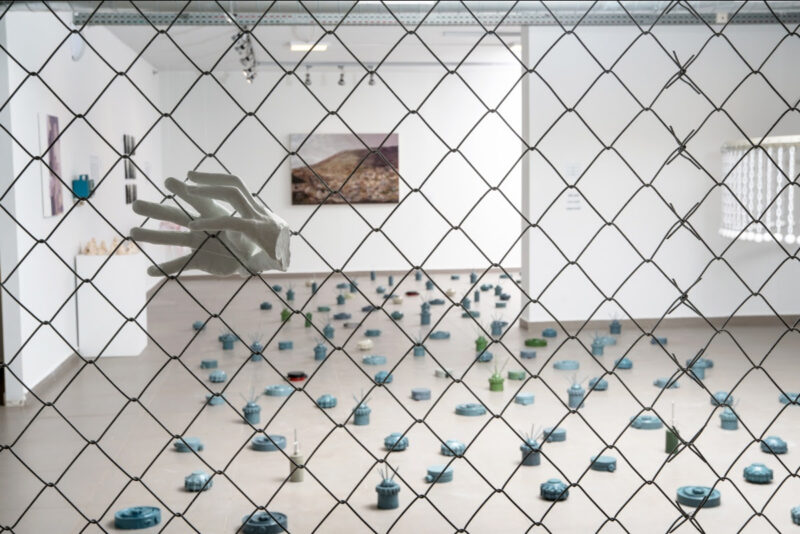
Majda Halabi Marie: This Field We Call Home, Exhibition View, Umm el-Fahem Art Gallery, 2020 (Photo: Yigal Pardo)
The Bezalel and Umm el-Fahem Art Gallery Excellence Center for Arts and Design
The Excellence Center for Arts and Design is a collaboration between the Umm el-Fahem Art Gallery and the Bezalel Academy of Art and Design (the leading art academy in Israel), supported by the Edmond de Rothschild Foundation. The program is designed to identify talented local youth and introduce them to various fields of art, design, and architecture through a curriculum of weekly classes and workshops given by both Arab and Jewish Bezalel-alumni instructors. The goal of the program is to provide these youth with tools for integration in higher education programs in related fields, thus assisting in bridging economic and cultural gaps between Israel’s central region and periphery, and between Jewish and Arab communities, as well as offering the participants opportunities for growth and development as future leaders.
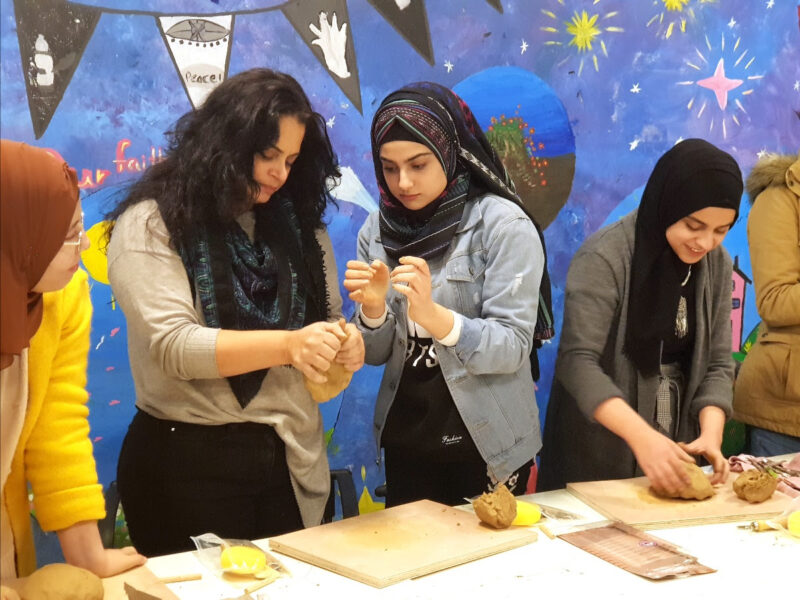
Shared Space
In the “Shared Space” program, two classes—one from an Arab school, the other from a Jewish school—take part in a series of meetings over the course of an entire year, the goal being to facilitate an unmediated, ongoing, intercultural encounter between the students via a mutual engagement with art. Through these meetings, which take place alternately at the Umm el-Fahem Art Gallery and the Wilfred Museum at Kibbutz Hazore’a, and include active tours of the exhibitions and hands-on workshops, the children get the opportunity to form true social bonds.
WADI: Young Arab Artists Forum
The Wadi: Young Arab Artists Forum is a program designed to assist young Arab artists who recently graduated from art academies in Israel to make it through the vulnerable transition stage between the protected environment of art school and the professional art world. The program provides a valuable meeting place where young Arab artists can continue to engage in artistic dialogue with established artists and curators, while also developing professional career-building tools and skills.
While the transition into professional life is a challenging phase for all art students, young Arab artists—the vast majority of whom are women—face particular obstacles, as they must weather not only the usual difficulties of establishing a career but also lingual, cultural, and geographical barriers, as well as more conservative social norms and gender-role expectations. Through the Wadi program, we help young Arab artists integrate into the otherwise Jewish, largely Hebrew-speaking local art world and become meaningful contributors on the national art scene.
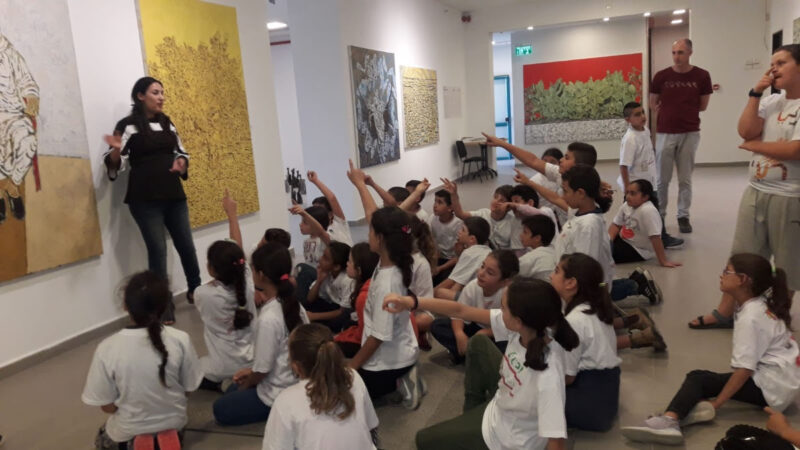
Multicultural Dialogue in the Museum
The Umm el-Fahem Art Gallery also collaborates with HaMidrasha – Faculty of the Arts at Beit Berl College and the education department of the Herzliya Museum of Contemporary Art to explore the museum as a multicultural space through art education and appreciation. As part of this project, Arab and Jewish art education students from HaMidrasha work together to develop and facilitate bilingual art workshops for mixed groups of Jewish and Arab high schoolers.
The Jewish-Arab collaboration in this project operates on several levels: on the institutional level, the Umm el-Fahem Art Gallery collaborates with the predominantly Jewish Herzliya Museum and Beit Berl College; within Beit Berl College itself, Arab and Jewish students cooperate to meet the challenges of working in a bilingual and multicultural environment as part of their training to become art educators; last but not least, the project allows the 10th graders of Arab and Jewish high schools to engage, through the mediation of art observation and creation, in a multicultural dialogue in an accepting, positive environment. Art thus becomes a sort of “third language” which both communities can share
Art Lessons for At-Risk Youth
The gallery offers creative art courses free of charge for at-risk youth, providing troubled young people with a valuable cultural and educational experience in their home city, taught by people from their ethnic and cultural background. Participants are encouraged to be open with their emotions, to deal with their personal issues through artistic expression, and to see art as an opportunity to broaden their horizons and improve their opportunities in life. The program includes workshops and discussions with parents and families, so that the entire family – and ultimately the whole community – is exposed to the message of tolerance promoted by the gallery.
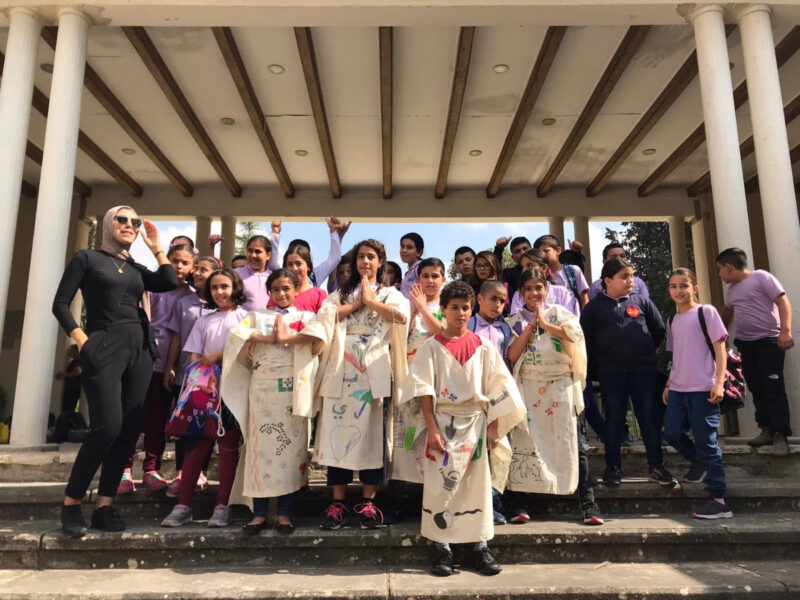
The Archives of Wadi Ara
In 2008, the gallery began to compile the first Arab archive of its kind in Israel, telling the story of the Wadi Ara area through the mementos, photographs, and accounts of the Arab families who have lived there for hundreds of years. Documenting history was not a common practice in rural Arab areas, and many historical and cultural artifacts have been destroyed through war, urban development, and the passage of time; the history of Wadi Ara was largely untold until the gallery inaugurated this archive project and restored the narrative of an entire community. Today, the Wadi Ara Archives include hundreds of photographs of Umm el-Fahem (many of which were recovered from archival collections in the UK, Germany, and USA), as well as historical documents, artifacts, and more than 500 video interviews with local elders, telling their personal stories.
Exploring History
Drawing heavily on the Wadi Ara Archives, the gallery has created a new “Exploring History” initiative for elementary schools and high schools in the Wadi Ara region. Students in this program explore the archive, and are then challenged to research their own familial history by interviewing their elderly relatives and collecting photos, mementos, and artifacts. The students then create a piece of art that represents one or more of the stories they have compiled.
To learn more about the Umm el-Fahem Art Gallery, please visit their website at www.ummelfahemgallery.com, and follow them on Facebook and Instagram.
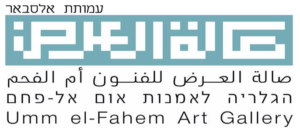
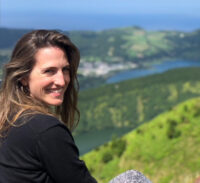
Nurit Tamir is the Umm el-Fahem Art Gallery’s Director of Projects and Resource Development.

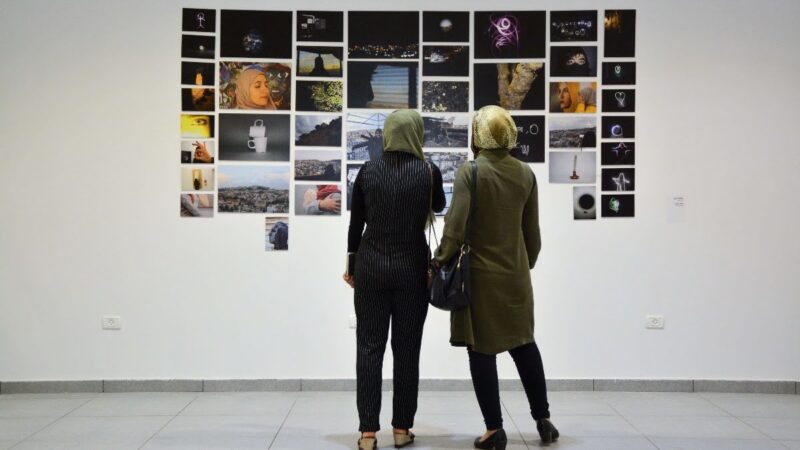




Leave A Comment